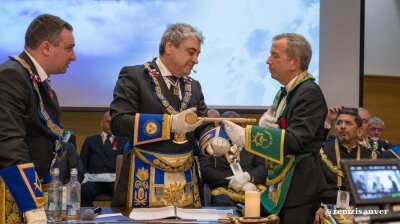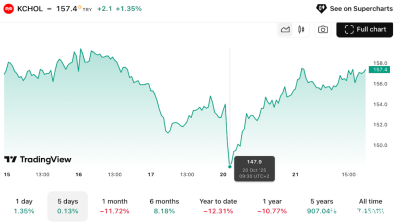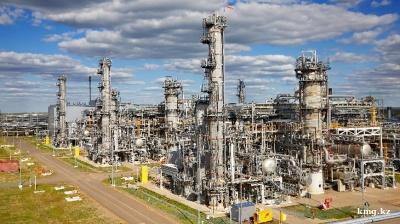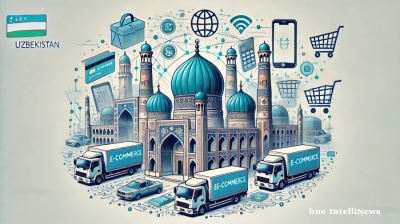Leading western banks JPMorgan Chase and HSBC unwittingly processed payments for companies linked to Russian warlord Yevgeny Prigozhin, the late leader of the Wagner Group Private Military Company, the Financial Times reported on September 24.
The payments were connected to Wagner’s extensive operations in Africa where Prigozhin hired out Wagner’s services to multiple regimes, earning billions of dollars in the process.
Prigozhin died last August when his private jet crashed outside Moscow in mysterious circumstances, shortly after he organised a march on Moscow in a military rebellion against Putin’s regime, briefly capturing the southern city of Rostov.
Wagner has been accused of multiple human rights abuses in Africa where it acts as trainers or paramilitary support for various regimes. Leaked documents obtained by the Center for Advanced Defence Studies (C4ADS), a Washington-based think-tank, show how payments for companies controlled by Prigozhin flowed through major financial institutions as Wagner’s operations expanded across the continent, the FT reports.
In 2017, Meroe Gold, a Sudanese company serving as a front for Wagner, purchased industrial equipment from China, with payments transiting via large Western banks. These transactions occurred before Meroe Gold was subject to sanctions, though Prigozhin himself had been sanctioned by the US in 2016.
Wagner often accepted payment in the form of mining concessions, including gold mines, and other business activity in the raw materials sectors from the mineral-rich, but cash-poor regimes in Africa. A search of Prigozhin’s residence after his death found suitcases packed with millions of dollars of cash and gold bars amongst other things.
The Kremlin was happy to allow Wagner to operate in Africa as a tool of its foreign policy to bind African states closer to Moscow and as a counter to the US and French military presence in Africa. Wagner also played a crucial role in the Ukraine war, especially in the eight-month long siege and eventual capture of the city of Bakhmut.
Wagner's operations, according to the US Treasury, were notorious for “mass executions, rape, child abductions, and other brutalities against innocents” in Africa. Prigozhin was also well known for recruiting Russian prisoners, offering them a pardon for six months of service, but using them as cannon fodder on the battlefield.
Amongst the leaked documents, one invoice from August 2017 reveals that Meroe Gold used a local Sudanese bank account to send a payment via JPMorgan Chase in New York to a Chinese supplier, the FT reports. Another payment, processed through Hang Seng Bank—part of the HSBC Group—facilitated the purchase of diesel generators and spare parts. There is no indication that the banks involved were aware they were handling transactions tied to Wagner front companies.
Although Meroe Gold was not under sanctions at the time, it was later targeted by the US in 2018 for being “owned or controlled by Prigozhin” and for helping him “exploit Sudan’s natural resources for personal gain.”
Both JPMorgan and HSBC distanced themselves from the revelations. JPMorgan stated: “After a review of the limited details shared with us, we have not found any records matching those transactions.” HSBC declined to comment on the Sudanese payments specifically but reiterated its dedication to combating financial crime, stating it has “invested significantly in building and maintaining an effective control framework to detect and mitigate this risk.”
C4ADS stated that the transactions demonstrate Wagner’s ability to blur the lines between licit and illicit activity. “To facilitate its early exploitation of natural resources, the internationally sanctioned organisation relied on a network of financial services and transportation networks to move supplies and generate revenue,” C4ADS said in its report.
Following Prigozhin’s death Wagner's African operations have reportedly been absorbed into entities controlled directly by Russia's defence ministry. Many of Wagner’s leaders have joined the Armed Forces of Russia (AFR) and have been credited with bringing fresh and more effective tactics to Russia’s military operations in the current operations to take the key Ukrainian city of Pokrovsk.
Since US President Joe Biden signed an executive order in December, new so-called strangulation sanctions have been effectively targeting Russian banking operations making payments to Russian entities via third party banks more difficult.
Wagner operated in numerous African countries including:
- Central African Republic (CAR): Wagner was heavily involved in CAR, providing security services to President Faustin-Archange Touadéra’s government in exchange for access to diamond and gold mining rights. They were also reported to have protected government officials and trained local forces.
- Sudan: Wagner had a significant presence in Sudan, where it supported the government of former President Omar al-Bashir. Wagner’s operations involved providing military training and securing mining concessions, particularly for gold. After Bashir’s ousting, the group reportedly maintained influence with Sudan’s military leadership.
- Libya: Wagner played a prominent role in the Libyan civil war, backing the forces of General Khalifa Haftar's Libyan National Army (LNA) against the UN-recognised Government of National Accord (GNA). Wagner fighters were reportedly deployed to support Haftar's offensive on Tripoli.
- Mali: Wagner expanded its operations in Mali after the country’s military coup in 2020, forming close ties with the junta. The Malian government hired Wagner mercenaries under the guise of combating terrorism, but their presence also coincided with growing instability and reports of human rights abuses.
- Mozambique: Wagner was involved in combating Islamist insurgents in northern Mozambique, particularly in the Cabo Delgado region, which is rich in natural gas. However, the group reportedly faced setbacks, with several fighters killed and operations scaled back.
- Madagascar: Wagner provided political and security consultancy services during the 2018 presidential elections in Madagascar, reportedly supporting President Andry Rajoelina’s campaign.
- Burkina Faso: There are indications that Wagner has been increasing its influence in Burkina Faso, particularly following the military coups in 2022 and 2023, where the junta sought external security support amid rising jihadist violence.
News

Grand master mason arrested as part of Turkey’s Can Holding investigation
Second wave of detentions executed.

Istanbul prosecutors summon Koc official and Akfen boss in Imamoglu investigation
Word of move sparked volatility in stocks.

Ukrainian military strike for first time disrupts operations of Western oil majors
Drone attack damage caused to Russian gas processing plant forces scaling back of output at Kazakh field partly owned by Chevron, Shell and Eni.
_Foto2_Divulgação_Foresea_(1)_1761062969.jpg)
Petrobras secures controversial Amazon drilling licence ahead of COP30 climate summit
Brazil's Petrobras has obtained authorisation to drill an exploratory well near the mouth of the Amazon River, sparking fierce criticism from conservationists just weeks before Brazil hosts UN climate talks.
_1761050969.jpg)



